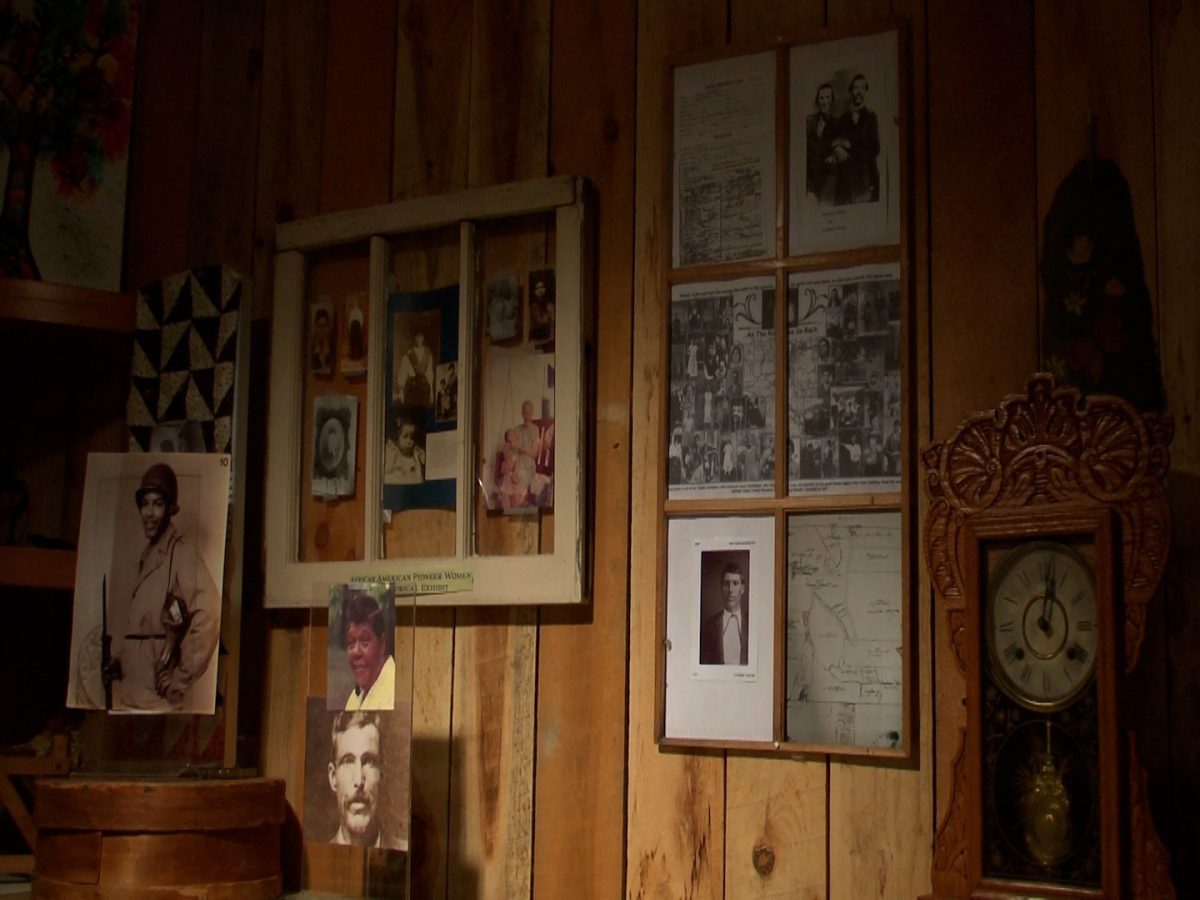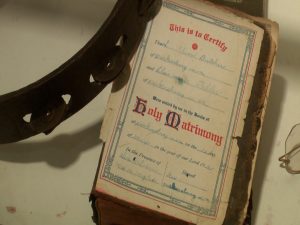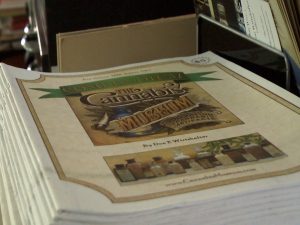
Local Organizations Hope to Cash in on Cultural Tourism Trend
By: Destiniee Jaram
Posted on:
ATHENS, Ohio (WOUB) — Off the winding Route 33 and 12 miles east of Athens, a town with two names was founded in the 1800s by seven formerly enslaved African Americans: Tablertown, or Kilvert, depending on who you ask and where you are.
David Butcher is a direct descendent of the Tablers and says his family’s history has been passed down for over 150 years and he wants to make sure the tradition continues.
His mission is to preserve his heritage and share it with others around the country.
“We do not want to be the generation that loses this story,” Butcher said.
Tablertown is named after Michael Tabler, slave owner from Virginia. He owned Hannah, his wife, and their six children. He later released them from slavery and moved his family to Ohio, a free state, in the early 1830s and gave each of his children a plot of land, forming Tablertown.
The town was renamed in the 1830s when a land surveyor saw the unclaimed land and named it after himself, Kilvert.
The settlement became a thriving town with a school, church, ample job opportunities and a protective, close-knit community until the 1930s. A tornado destroyed most of the town in 1937.
Butcher currently houses his impressive “people of color” collection and family heirlooms in a modest pole barn next to the cabin he calls home in Kilvert.
Inside, the small barn transforms into a mini-museum with three separate rooms presenting the history of Tablertown, as well as mining and education in the region.
Glass displays boast decades of baby photos, childhood toys and memorabilia from every American war, including a wooden leg from Butcher’s great uncle Elias Butcher.
A large, bright red metal sign reading “Tablertown circa 1830,” which greets incoming visitors, hangs on the wall proudly.

The stories of Tablertown and others alike force Americans to reimagine American history as it’s known across the country.
“It’s an important history,” Butcher said. “It is not Tablertown history, it’s not Kilvert history, it’s not Black history, it’s not white history, it’s not the Indian history. It is American history.”
Today, the town is still familiar but many people struggle to find employment, forcing many to uproot.
“Can you imagine coming to a community where there are no jobs? Where the majority of the people are people of color and have to travel great distances to work,” Butcher said. “I travel 100 miles a day, one way, work 12 hours and travel a hundred miles back home. I’m not the only one who does that in the family. So, I feel this is an exciting time that we can create something where people can actually stay in the community and make a living wage.”
In hopes of creating an enduring exhibit, Butcher is working toward registering the collection as a nonprofit as well as acquiring a more permanent and accessible location with stable hours and permanent staff within the next year.
He also hopes to eventually digitize the collection so anyone in the world can visit the museum virtually.
Just down the road from Tablertown in Guysville, formerly known as Savannah, is the Cannabis Museum.
The Cannabis Museum is rediscovering the surprising and forgotten history of medicinal marijuana use, a common and legal medical practice from the 1830s until it was criminalized in 1937.
Some of its exhibits include “The Origins of Smoking in Africa” and literature on marijuana and hemp.
Artifacts at the museum are mainly acquired through “controlled substance collectors,” a secret group of mostly retired physicians and pharmacists who preserve medicinal substances.
Acquired bottles are then microscopically examined for signs of authenticity, such as raised ink lettering from printing presses from the era.
While not currently open to the public, the museum has graduate students from Ohio university archiving glass bottles once used to prescribe cannabis from the early 1800s to early 1900s for use in future exhibits.

Together, these organizations hope to create a sustainable business plan that will also serve as a catalyst for stimulating local economies through cultural tourism.
Butcher says he wants the community to be self-sustaining and believes bringing in tourists will create new jobs and income for area business, such as the local restaurants between Tablertown and Guysville.
Cultural tourism can help eradicate poverty and offer job opportunities for local communities, according to the United Nations Educational, Scientific and Cultural Organization.
A future tour could provide transportation from Athens to more remote locations in the region and make stops at museums, organizations and historical sights along the way.
“This cultural tourism is about rediscovering our past so we can feel our future,” said Basil Masri Zada, curator of education and exhibitions at the Cannabis Museum.
Cultural tourism also encourages local pride and greater investments in communities, according to the Organization for Economic Cooperation and Development.
‘‘When there is one thing that is successful and bringing people, you see other businesses that start to flourish,” Masri Zada said.
The Cannabis Museum will have an exhibition on display at Majestic Galleries in Nelsonville from September 24 to October 24 and plans on opening to the public in the next 18 months.

